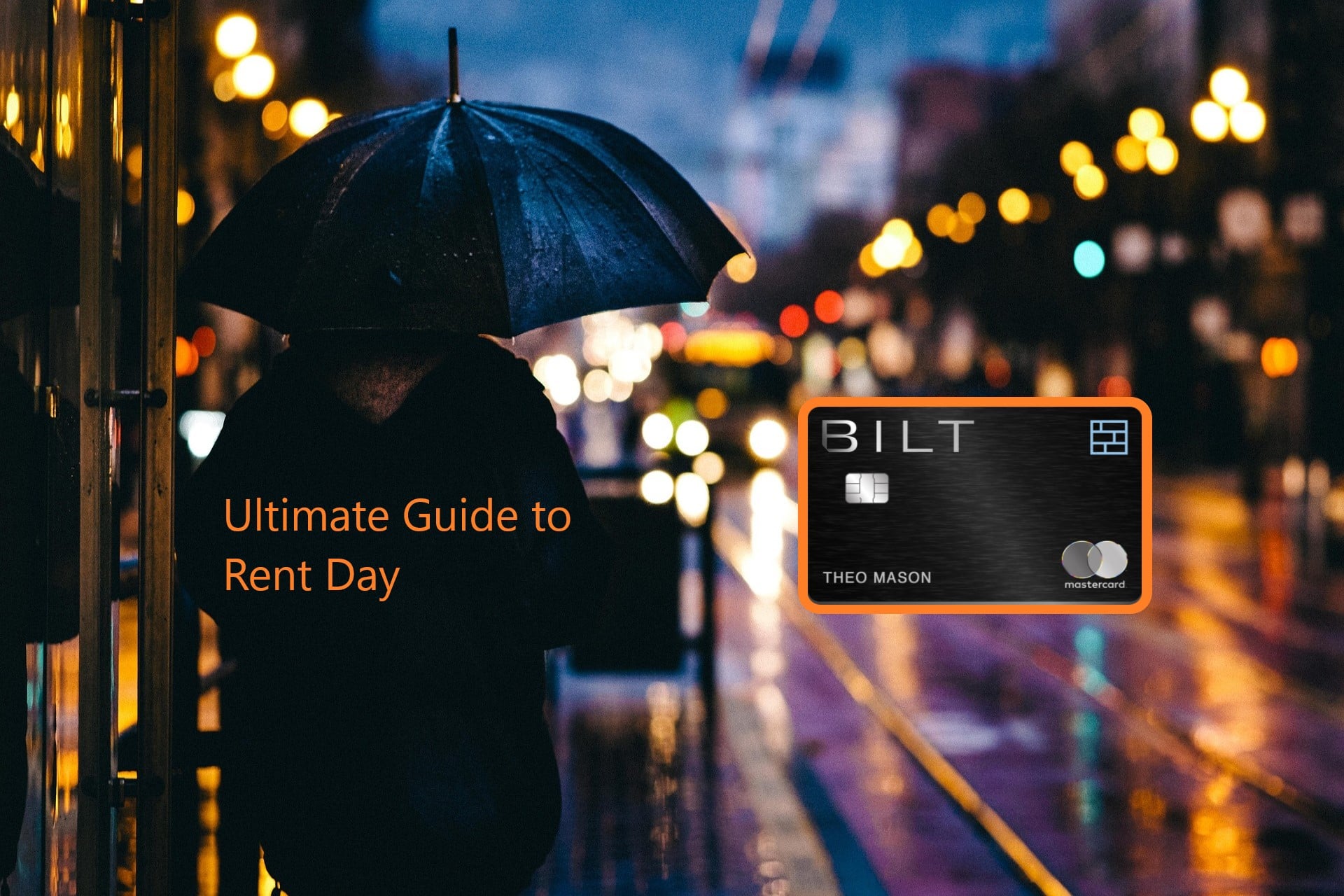Last updated on April 3rd, 2024
Owing money to the U.S. government or your state is never a fun experience. With federal and state income tax season upon us, many tax questions arise. One of the most common is, “Can you pay your income tax bill with a credit card?” The good news is “yes,” but as always, there’s a catch. Here’s everything you need to know about credit cards and taxes.
Table of Contents
At a Glance
- The IRS allows credit card payments through select payment processors for a fee.
- Many states also allow credit card payments, though not every state.
- Paying taxes with a credit card may provide more breathing room for big payments but comes with added fees and interest charges.
Can You Pay Your Taxes with a Credit Card?
Death and taxes are the two unavoidable aspects of life. Now that tax season has arrived again, questions about paying off tax bills are beginning to fill message boards and search engines across the United States.
One of the most asked questions about settling an unexpected tax bill is using a credit card. A credit card allows paying off a tax bill with a grace period’s bonus before any interest accumulates. This, in turn, gives taxpayers additional leeway to wait for their next paycheck, stimulus payment, etc., before repaying the credit card balance.
Is this process legal, however? Can you pay taxes with a credit card?
Paying Federal Taxes
So, can you pay your IRS tax bill with a credit card?
Yes, it is legal to pay your taxes with a credit card. The IRS has authorized several third-party payment processors to accept credit card payments on their behalf. However, the payment processor will charge a fee for processing the credit card payment and the taxes owed.
The IRS allows taxpayers to settle their outstanding tax bill through a credit or debit card through three payment processors. Keep in mind that paying taxes with a credit card comes with a service fee of between 1.96% and 1.99% of the transaction cost:
| Payment Processor | Service Fees | |
|---|---|---|
| ACI Payments, Inc. | 1.99% of the transaction costs ($2.60 minimum) | |
| Pay1040 | 1.99% of the transaction costs ($2.58 minimum) | |
| PayUSAtax | 1.96% of the transaction costs ($2.69 minimum) | |
All three payment processing options take the major credit card issuers: American Express, Discover, Visa, and Mastercard.
Other important credit card payment details for taxes include:
- Your card statement will list your payment as “The United States Treasury Tax Payment” and your fee as “Tax Payment Convenience Fee” or something similar.
- Federal tax lien releases can take up to 30 days after we receive full payment; liens may remain for other individuals who have not fully paid their portion.
- The IRS gets no portion of any processing fees
Paying State Income Taxes
Federal taxes are one thing, but what about state taxes – can you pay your state taxes with a credit card, too? Yes, depending on the state where you live or conduct business. Here is the current status of paying taxes with credit cards in your state:
State Allows CCs Fee
Alabama
No
–
Alaska
No
–
Arizona
No
–
Arkansas
No
–
California
Yes
2.3%, minimum $1
Colorado
Yes
Unspecified
Connecticut
Yes
2.35%
Delaware
No
–
Florida
Yes
1.85%, minimum $1
Georgia
Yes
2.50%
Hawaii
Yes
Unspecified
Idaho
Yes
Unspecified
Illinois
No
–
Indiana
Yes
Unspecified
Iowa
Yes
2.45%, minimum $3.95
Kansas
Yes
2.50%
Kentucky
Yes
2.45%
Louisiana
Yes
2.45%
Maine
No
–
Maryland
Yes
2.49%
Massachusetts
Yes
2.30%
Michigan
Yes
2.75%
Minnesota
Yes
2.25%, minimum $3.75
Mississippi
Yes
2.50%
Missouri
Yes
Unspecified
Montana
No
–
Nebraska
Yes
2.35%
Nevada
No
–
New Hampshire
No
–
New Jersey
Yes
Unspecified
New Mexico
Yes
Unspecified
New York
Yes
2.25%
North Carolina
Yes
$2.00 for every $100.00 increment of tax payment
North Dakota
Yes
2.49%
Ohio
Yes
2.50%
Oklahoma
Yes
2.50%
Oregon
No
–
Pennsylvania
Yes
2.49%, minimum $1
Rhode Island
Yes
2.50%
South Carolina
Yes
Unspecified
South Dakota
Yes
2.45%
Tennessee
Yes
2.49%
Texas
Yes
$1 up to $100 payment; 2.25% plus $0.25 processing fee for payments over $100
Utah
Yes
Unspecified
Vermont
Yes
3%
Virginia
No
–
Washington
Yes
2.5%, $1
West Virginia
Yes
2.5%, $1
Wisconsin
Yes
$1 for payments less than $40; 2.5% for payments greater than $40
Wyoming
Yes
2.50%
Can You Use a Credit Card to Pay Your Taxes Using Tax Preparation Services?
What about tax software services? Filing taxes through online tax preparation services and apps, like HR Block, TurboTax, and more, offer ease, speed, and the confidence that tax experts stand behind all returns.
Filing taxes through these services also allows taxpayers to pay fees and back taxes with credit cards – at an additional cost. The IRS also lays out these fees, which are as follows:
| Payment Processor | Service Fees | |
|---|---|---|
| ACI Payments, Inc. | 1.98% of the transaction costs ($2.50 minimum) | |
| Pay1040 | 1.87% of the transaction costs ($2.50 minimum) | |
| 1040tax | 1.85% of the transaction costs ($2.69 minimum) | |
Other significant tax payment details when filing with tax services include:
- The integrated e-file and e-pay debit or credit card option is available through tax preparation software and tax professionals. Refer to tax preparation software or your tax professional to determine if the debit or credit card option is available and for more information about it.
- Some tax preparation software may allow partial payments. Multiple payments cannot be made through tax preparation software.
What Are the Benefits of Paying Taxes with a Credit Card?
Since the IRS accepts credit card payments, should you consider using your card this tax season? Using a credit card comes with a variety of benefits, including:
Special Financing
Credit cards allow users to offset purchases, either with or without interest. As previously mentioned, the introductory grace period with a credit card provides a 21-day window in which tax payments will not accrue interest. This basic feature can provide breathing space for raising additional funds to pay off the balance.
Some credit cards may also feature a 0% introductory APR on purchases. These special financing periods can help the cardholder pay off any tax bill balances over an extended period with no extra interest payments.
If you have a big tax bill and can pay it off within the promotional period, you can essentially borrow money interest-free. However, it is critical to carefully read these offers’ terms and conditions to understand the implications and potential fees.
Rewards Points
Credit cards also offer rewards points, cash back, or frequent flyer miles. No rewards credit card offers “taxes” as a bonus spending category, so cardholders must settle for a basic rewards rate. Still, with an unlimited cash back rewards card, like the Chase Freedom Unlimited, that equates to 1.5% cash back – meaning a $500 tax payment comes with a $7.50 rebate.
What Are the Drawbacks of Paying Taxes with a Credit Card?
While paying taxes with a credit card might sound like a great idea, there are equally compelling reasons not to do this. Some of the negatives regarding credit cards and your taxes include:
Fees
The most glaring downside of paying taxes with a third-party processor is the additional fees it may incur. While the fees listed above don’t look imposing on paper, they can add up to a decent chunk of money – which isn’t ideal if you expect to owe money after you file your taxes. Imagine you owe the IRS $10,000 in taxes; you might end up paying an additional $200 to use your credit card to pay.
Interest Charges
Credit cards are great for earning points, but they also serve another purpose – to let you pay over time. Like any other credit card purchase, using your card to pay taxes allows you to repay what you owe over time – but with added interest. That same $10,000 tax bill would become almost unmanageable instantly unless you have a robust plan for repayment.
Credit Score Damage
While paying your taxes with your credit card won’t necessarily hurt your credit score, it might. Relying on your credit card to pay a tax bill might negatively impact your credit utilization ratio.
Your credit utilization ratio is the amount of credit you use compared to your total credit limit. Using a big chunk of your credit limit to pay your taxes can negatively affect this ratio, lowering your credit score. If you plan to apply for a loan, mortgage, or any other form of credit in the near future, it is vital to consider the potential impact on your creditworthiness.
Should You Use Your Credit Card to Pay Your State and Federal Income Tax?
While paying income tax with your credit card offers some benefits, always weigh the positives with the negatives before using your go-to credit card this tax season.
Can you afford to repay the balance? Not paying off the balance within any grace or promotional period will incur interest.
What impact will the tax bill have on your credit score? Because credit utilization is a big percentage of your FICO credit score, paying your income tax with a credit card can raise your credit utilization ratio significantly – and drop your credit score quickly.
Also, remember that not all taxes are eligible for credit card payments. The IRS website lists all eligible taxes that accept credit card payments – including tax bills over $100,000. Ensure your tax form qualifies before paying with a credit card.
Paying income tax with a credit card is possible but requires careful consideration. Do your homework and determine if this process is right for you – and then make sure you repay the balance without falling behind.
Can an IRS Installment Agreement Hurt Your Credit Score?
Personal loans and credit cards may harm your credit score when used to pay taxes, but what about an IRS installment program?
The IRS offers several installment repayment programs for taxpayers who owe money on their income tax or other tax returns. These IRS-backed programs provide 120-day (or longer) repayment plans that are negotiable based on how much a person owes.
IRS installment plans offer two significant benefits to those who owe a sizeable tax bill: low-interest rates and no credit score impact.
Interest rates with IRS installment plans are typically around 3% APR, much lower than many personal loans or credit card interest rates. However, keep in mind that longer, negotiated plans come with setup fees, and late penalties apply to short-term repayment plans. These late penalties are 0.25% of the entire balance every month until the tax bill is fully settled.
Additionally, IRS installment plans are not considered personal loan. This status means that the loan will not have any impact on the credit score of an individual. For this reason, a government-backed installment plan may be your best bet for paying back taxes. Keep in mind that failure to repay the balance on an IRS installment may result in tax liens on your property and other negative impacts.
Related Article: Can You Pay Rent with a Credit Card?
Featured photo by Sarah Pflug / Burst
Editorial Disclosure – The opinions expressed on BestCards.com's reviews, articles, and all other content on or relating to the website are solely those of the content’s author(s). These opinions do not reflect those of any card issuer or financial institution, and editorial content on our site has not been reviewed or approved by these entities unless noted otherwise. Further, BestCards.com lists credit card offers that are frequently updated with information believed to be accurate to the best of our team's knowledge. However, please review the information provided directly by the credit card issuer or related financial institution for full details.



